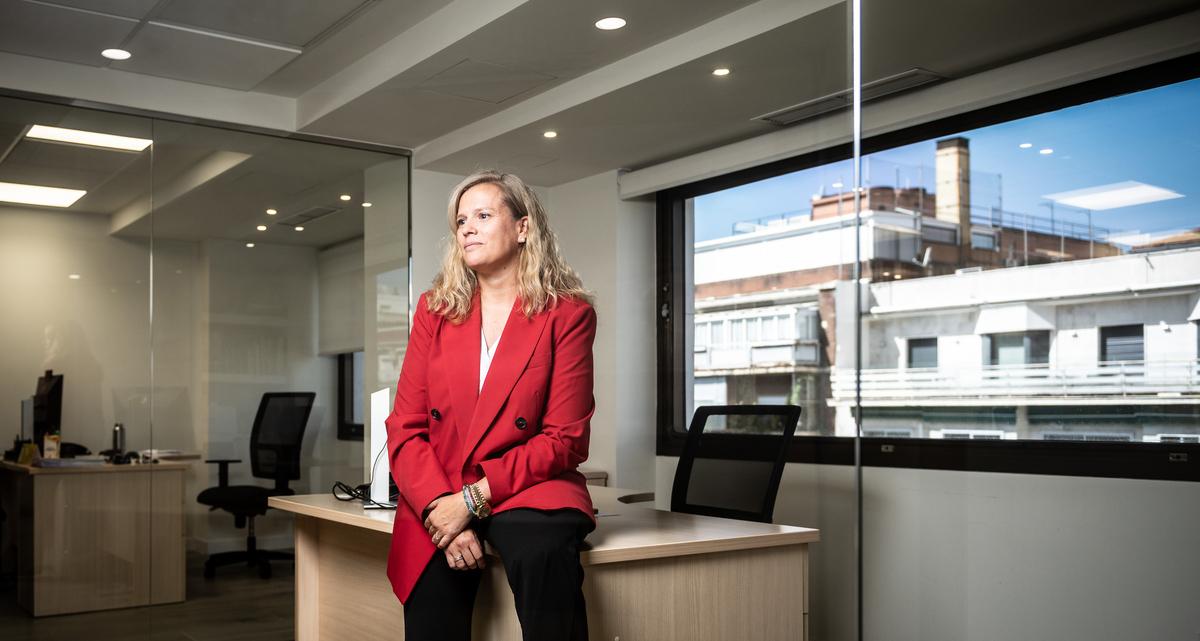Interview with Cristina Riestra, CEOE Deputy Director of Industry, Energy, Environment and Climate
Sustainability has been consolidated as a central axis of European and national planning, an increasingly ambitious regulatory framework laying the foundations for the ecological transition.The proposal provides a historic opportunity to promote structural change in the economy, with a focus on efficiency, resilience and technological innovation.However, it also creates challenges for the business community, which challenges its ability to balance deadlines and regulatory requirements, particularly in strategic areas where waste is generated.
In this context, the creation of the Spanish Business Organizations (Ceoe) plays a key role as a link between companies and management.The work focuses on conveying the voice of the manufacturing fabric, promoting a consistent and participatory direction and proposing measures that allow progress without disrupting competition.From tax and financial incentives to managing administrative performance and strengthening the number of employers, employers insist that stability and competition should not be seen as pillars of today's economy.
In front of this vision stands Crooe faculty Disecy diptoctor Cristina Rustra, who in the main discussion of the environmental sector, which in this secret had the opportunity to strengthen the competition.A pragmatic and ambitious volunteer, she is committed to building a new and sustainable brand with the keys and keys to connecting a prosperous and green economy.
“For the positive impact of regulation to be widespread, companies, especially SMEs, need to come with support tools, financing and regulatory clarity.”
Sustainability is an important topic of public policy in Europe and Spain.How does the Ceoe assess the level of the environmental movement in Europe and Spain?Is the pace right, or do you believe there is a gap between the company's established goals and potential?
At ceoo, we value sustainable development as a political priority at both European and national levels.This method is an opportunity to promote structural changes to improve the economic structure, the economic model is in line with global environmental experts.Spanish companies have shown resistance on this issue, and in many respects they are leading the way in innovation and acceptance.It is important, however, that the nature of the process allows for changes to adjust the strength of each area.With a well-planned, balanced and sustainable system, this level can be translated into a practical driver of change.
This is the case in addition to special needs
Framewk Aturk is responsible for the investigation, but it is also very important to rule out strategic releases such as waste management.Many companies have developed advanced recovery and design solutions that allow them to improve efficiency and added value.for donors – realistically dedicated, transferred and encouraged through realistic management.
"The main obstacle is not in the environmental goals that companies are committed to, but in the way certain measures are implemented and in the harmonization between administrative authorities."
What aspects of current environmental regulations pose the greatest barriers for companies in terms of compliance, costs and/or procedures?
The main barrier we found is not the content of the environmental goals that the companies respect, but the way in which certain measures are implemented to achieve them.Factors such as lack of coordination between administrative levels, high administrative burdens or compliance timelines that do not take into account the diversity of sectors can create tensions.However, there is much work to be done on joint solutions that reduce these barriers and optimize the implementation of regulations, while respecting competitiveness and business realities.We see a clear will from the administration.
From a business perspective, what are the CEOE's recommendations to improve the quality of environmental regulations and avoid disproportionate burdens without abandoning sustainable goals?
The quality of regulation is a key factor in the success of the environmental transition.At CEO we defend a positive approach that combines environmental ambition with economic realism.Among other measures, we propose: promoting early cooperation in standards development;Strengthening the principle of technological neutrality to promote innovation;establishing fair transition frameworks;and ensuring synergy between different regulatory frameworks.participants and therefore if they are more predictable and efficient with their reality, companies will contribute more actively to achieving goals sooner.
"Companies need regulatory stability,
Public-private collaboration is essential in the ecological transition.What role does the CEO play in negotiating with management to communicate environmental law to business sector concerns?
Ceoe assumes a helpful and active role in discussions and arrangements.Our goal is to be a bridge between the group and the institutions, providing the technical knowledge, foresight and ideas that are available that the environmental laws are useful and effective.We participate in working groups, public discussions and legal proceedings.This cooperation allows us to identify the appropriate measures that strengthen the protection of the environment and the competitiveness of our companies.
In the specific case of waste, a deep regulatory transformation is underway.So what would you say is the most relevant challenge facing companies today in the current evolution of national and European legislation?
The waste sector is a sector that represents a structural change with the potential for industrial development.The sector is completely up to the circular model.The main challenges are to simplify the definitions and requirements between the European law and the national framework, to prepare simpler regulatory responsibilities for the chaotic physical laws.They are ready to be given stability of control and appropriate tools.
"Environmental goals must be accompanied by tax incentives, support for research, development and innovation, and digital projects that will quickly accelerate work"
Do you think Spanish companies are ready to adapt to the new requirements of the circular economy, such as ecodesign, traceability and extended producer responsibility?
We have a lot of change and a lot of investment ahead of us, so I'm more than ready to say that companies are showing a high level of commitment and ability to adapt.Many of them are already implementing ecodesign strategies, digitalization for traceability and shared responsibility models.
It is necessary to extend this good practice to all manufacturing plants, with technical and financial support measures, especially in the case of SMEs.A method of cooperation and institutional support is something that contributes to a positive response of all sectors to the new circular requirements.
To move to more sustainable models, companies often require certain political, financial or economic stimuli.What kind of measures do the CEEOSE claim or consider how important it is to ease the transition in the business fabric?
At CEOO we believe that environmental goals should be accompanied by policies that promote change.We suggest measures such as: Investment benefits for investment in electronic technology;R & D & I support.Special support for SMEs in technology adoption;authorization procedures continue, installation work, so they do not reduce green investment.
In particular, we offer a digital single window for sustainable projects and more coordination between administrations to avoid duplication and blockages into procedures.In addition, the promotion of green financing instruments and cooperation with financial entities, both public and private, is essential to ensure that companies can access the resources needed to face the resources needed to face the restor.Such measures, properly implemented, not only accelerate the transition but also generate employment, value and international leadership.
In addition to legal compliance, the circular economy plays an important role in business.Do you think you can really improve the competition?
Absolutamente. La economía circular es una de las grandes oportunidades estratégicas para la empresa española. Nos permite reducir la dependencia de materias primas, innovar en productos y procesos, y fortalecer cadenas de valor locales. Cada vez más empresas están incorporando criterios circulares no sólo como cumplimiento normativo, sino como una ventaja competitiva y un factor diferenciador. El reto ahora es escalar estas iniciativas, conectar sectores y fomentar un ecosistema industrial donde la circularidad sea sinónimo de innovación, eficiencia y liderazgo.
Therefore, beyond regulations, CEOE promotes a proactive and pragmatic approach by integrating technologically, economically and environmentally viable improvement opportunities.A clear example is our catalog of good environmental practices, which showcases remarkable real-world success stories in a variety of fields.We are committed to continuous engagement with the business community and administration.This is to strengthen the ecological transition that leaves no one behind and to strengthen the competitiveness of our economy in the new global conditions.
"More and more companies include circular criteria not only as regulatory compliance, but also as a competitive advantage and differentiation in the market"
And finally, what is CEOE's future vision for the balance between sustainability and competitiveness?
At CEOE, we believe that stability and competitiveness are not opposite concepts, but interdependent pillars of a modern and robust economy.Environmental transition should be seen as an opportunity to improve productivity, create quality work and promote green innovation.This requires a coherent set of rules and regulations based on public-private cooperation, and policies that accompany companies in their transformation.
Our vision is not only ambitious but also realistic: to create a model in which companies not only respect environmental responsibilities but are leaders with sustainable, exportable and scalable solutions.CEOE is committed to this path, promoting proposals that strengthen market integration, reduce unnecessary barriers and promote responsible investment.We firmly believe that the competitiveness of the Spanish commercial fabric will increase if it is aligned with the values of sustainability and social progress.








